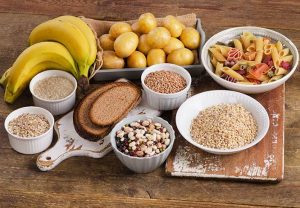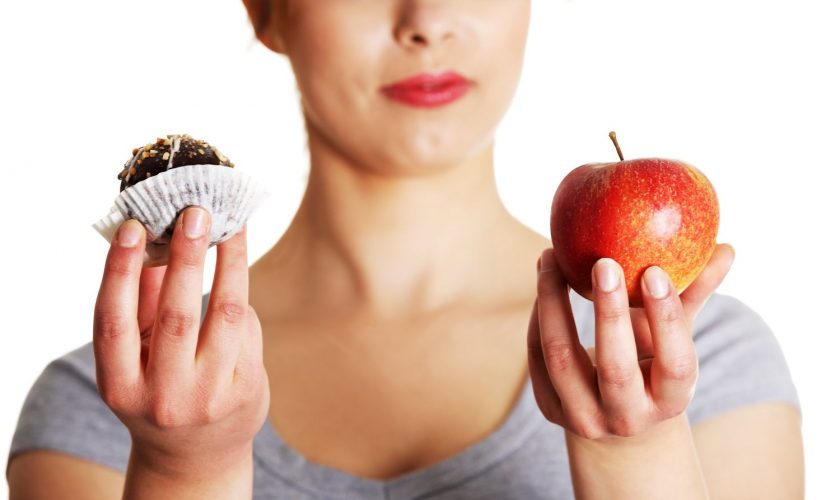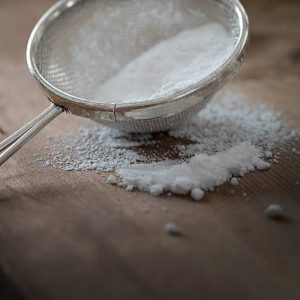
You know, the idea behind weightloss for so many people is removing a particular food group from their diet
And that food group that has suffered a lot is carbs.
You know, the advent of the keto-diet, Atkins diet, and other “ low carb diets” can make you question the health benefits of carbs in our body and even label carbs as “bad”.
Lets do that same explanation on how carbs affect weightloss and why you get to lose weight easily when you take off carbs
So, what are Carbs?
Basically, carbs are one of the three macronutrients that form a major part of our diet. Other macronutrients are protein and fats. All these macronutrients provide the body with energy usually measured in calories.
There are basically 3 types of carbs found in food and they are:
1. Refined Carbs: these type of carbs have been processed, and during the processing, some vital nutrients especially fibre has been removed, leaving just sugars. It is very easy for these types of carbs to spike your blood sugar and lead to other complications Examples include some breakfast cereals, white flour, pastries, snacks, sodas.
2. Dietary Fibres: also a type of carbs which aids easy digestion and help reduce blood glucose spikes. Examples include leafy vegetables like spinach, broccoli, ugwu,tete etc.
3. Starch: also found in plants and slowly release energy to the body throughout the day. Examples include potatoes, yam, plantain, whole wheat or white bread, brown or white rice.
These foods also contain varying amounts of dietary fiber which could provide extra health benefits.
Can Carbs make you Fat?
Whatever food consumed in excess would definitely lead to fat gain over a long period of fat. Whether it is from carb, protein or fat source. Each of these macronutrients contain calories.
Why do I lose weight when I cut Carbs?
1. You shed water weight
so many times when people put off so much weight over a short period of time, what happens is that they just lost water weight.
Now that sounds weird, but let me explain.
The body stores arbs in the liver as glycogen, and each gram of glycogen is stored with 3g of carbs. So, when you continue to cut out carbs, what you are doing is cutting out the glycogen store with water, not necessarily fat. Ever noticed that the weight comes back when you add carbs back?
That is because the process is a reversible one.
2. You’re on a Calorie deficit diet
Cutting out carbs means cutting out a source of calorie to the body, that will obviously lead to weight loss. Ideally if 500kcal is removed daily from the diet, it will lead to 0.5-1kg loss in weight, so you’re on a calorie deficit, you must lose weight.
The bad thing here is that this might in turn lead to muscle mass loss.
What’s the best approach to Weight-loss?
Sustainability over a long period is very important when trying to shed some pounds or when adopting a “diet”.
The best approach is to adopt a lifestyle that suits you. Calorie deficits, exercise regimes, and lifestyle modifications all go hand in hand to help lead a healthy lifestyle.
The weight loss approach should not be ‘all or nothing’, strict, rigid, or a quick fix. It should be what you can live with over a very long period of time.
Summary
Losing weight isn’t a do or die affair, you don’t need to take out any food group to achieve that, we could always work together and attain your desired/ideal body weight.
Sources:
https://paleoleap.com/everything-you-need-to-know-about-water-weight/
https://www.menshealth.com/health/a26361054/water-weight/
https://pubmed.ncbi.nlm.nih.gov/7332312/
https://www.medicalnewstoday.com/articles/320603#ways-to-lose-water-weight
https://www.nhs.uk/live-well/healthy-weight/why-we-need-to-eat-carbs/#:~:text=In%20the%20absence%20of%20carbohydrates,%2C%20you’ll%20gain%20weight.








